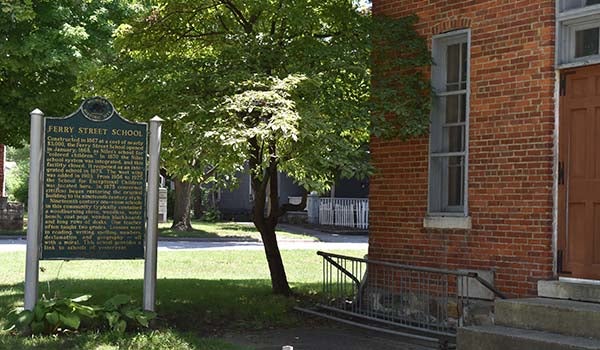Niles nonprofit works to keep evictions out of courts
Published 9:03 am Thursday, August 6, 2020
|
Getting your Trinity Audio player ready...
|
BERRIEN COUNTY — On Wednesdays, Ric Pawloski spends the day at the Niles court house.
“It’s landlord-tenant day,” he said. “The goal is to try to keep the burden to the courts low as well.”
The moratorium on evictions was lifted on July 16. The moratorium put in place to have residents focus on public health, as opposed to being evicted from their homes. As heavy restrictions resulting in the closures of non-essential businesses and schools began in March, many residents faced both the challenge of staying healthy, and keeping financially afloat.
The unemployment numbers for Michigan have fallen from over 21 percent in May to just over 14 percent in June, and the moratorium ended with another program was put in place.
“I’ve been taking to landlords probably since March,” said Pawloski, executive director for the Ferry Street Resource Center. “As many [landlords] as I can and local apartment complexes, just to find out where they stand and how many people are struggling to pay rent.”
The Ferry Street Resource Center, 620 Ferry St., has been working with residents facing eviction and notices. Pawloski and his staff work with those in need to apply for the Michigan’s Eviction Diversion Program.
“We are looking for anyone in Niles and the surrounding areas who gets what is called a ‘notice to quit,’ or ‘demand for possession’ from their landlord and to bring that to here,” Pawloski said.
The applications will be filled out by both the tenant and landlord to see if they qualify for the program.
“We are pretty excited about it,” Pawloski said of the eviction diversion program.
On June 26, Gov. Gretchen Whitmer signed an executive order creating the Eviction Diversion Program. The order would make $50 million in funding available for rental assistance to be provided to landlords, as long as they let the tenants behind on their rent stay in their homes. In order to receive the aid, landlords would have to forgive late fees and up to 10 percent of the back rent due. If rent was not completely able to be covered by this program, a manageable payment plan was to be facilitated by the Supreme Court Administrative Order 2020-17.
“We have seen an increase in calls since it was publicized through the governor’s orders,” said Denessa Driver, program supervisor at Emergency Shelter Services in Benton Harbor. “People have been calling the last couple of weeks, landlords, inquiring as to the process and when it will be in effect so they can receive their money.”
ESS serves the Berrien County area as its Housing Assessment and Resource Agency.
According to the Michigan State Housing Development Authority, the program will be administered through HARAs.
“[ESS] are the ones who will see if applications meet the qualifications,” Pawloski said. “They’ll come here, get their applications filled out. We’ll help make sure it’s all done correctly, and all the correct paperwork is with it, so when it goes to [ESS], there’s no hiccups in the process.”
The eviction diversion program is effective for any back rents as of March 1.
With the Coronavirus Aid, Relief, and Economic Security Act $600 weekly benefit to unemployment having ended on July 31, Pawloski sees the impact already just a week later.
“It’s potentially going to make it worse,” he said. “We’ve been able to provide all the wraparound services that we normally provide for people. I’ll be present in the courthouse with the representative from ESS, so we can work with landlords and tenants, and try to keep them out of the courts.”
According to MSHDA, “rental assistance payments will be structured based on the tenant’s income. Those under 50 percent area median income are eligible for 90 percent rental arrearage payment up to $3,500 and one-month’s rent, up to $1,200 going forward.”
There are other tiers of eligibility, with adjusted amounts of aid depending on area median income.
While the Berrien County’s HARA, ESS, awaits its allocation of the $50 million from the state, both Ferry Street Resource Center and ESS are continuing to process applications to let tenants and landlords know if they will qualify for the aid.
“We are seeing the need is great, so we have some processes in place even though the funding is not there,” Driver said. “We are processing applications and letting people know if they qualify, and if not, let’s get you somewhere where you can possibly get some help. We don’t want anyone to fall through the cracks.”
Pawloski encouraged residents who receive notices from their landlords to bring them to the Ferry Street Resource Center. Appointments can be made over the phone for the center on Wednesday and Thursday. 10 a.m. to 3 p.m. on Mondays and Tuesdays is the best time to arrive to the center for help, according to Pawloski.
“We are hoping to continue beyond what the help the state is giving,” he said. “We want to be able to help people to avoid eviction by budgeting, having the right working, and doing the right things and be able to pay rent.”







